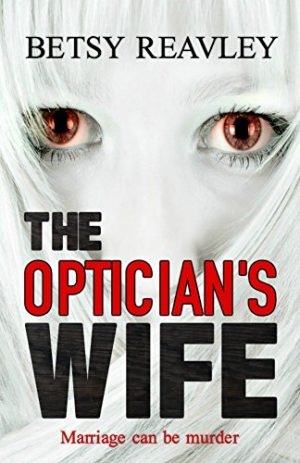
Every single thing about Deborah Campaign seems to be ordinary. If they notice her at all, people see frizzy hair, a slightly pear-shaped build, charity shop clothes and an unremarkable checkout girl in Woolworths. At home, in the anonymous terraced house in a quiet Cambridge street, she looks after her widowed father and her infinitely more attractive and vivacious sister, Dawn.
This is her story, and it is told in her own voice, from the first page to the last. Her life changes dramatically when she is befriended by a bright, handsome and gregarious young trainee optician called Larry Miller. At first she is flustered by his attentiveness, then disbelieving, but finally amazed that he is taking such an interest. Their courtship develops at a dizzying speed. Debbie loses her inhibitions, her virginity and – most importantly – her rock-bottom self-esteem.
Larry and Debbie. The odd couple. The sleek cat and the dowdy mouse. They become man and wife and, a little at a time, Debbie begins to blossom as a young woman, while Larry becomes fully qualified. They are not living in luxury, but they have their own home and the prospect, in time, of it being filled with children. By this point, Reavley has dropped one or two spanners into the works, the first being the presence in Cambridge of a serial killer, whose victims are found minus their eyeballs.
Although it is always Debbie’s voice we hear, the time frame of the story does dart backwards and forwards. This device can be very effective, but there are times when the narrative is unclear. It’s a small point, but it’s much easier to check on dates as chapter headings when reading a printed book. On a Kindle it is irksome to keep checking what the year is meant to be.
We follow Debbie and Larry’s marriage closely. By the time their third child is born, Debbie is boosting the family income in ways that she’d never have dreamed of while working at Woolworths. She has become a prostitute. Sister Dawn has married, but unwisely, and when she suffers one beating too many, she and daughter Daisy move in with the Millers. Motherhood has not been altogether kind to Debbie’s figure, and as the svelte Dawn makes a point of leaving her more suggestive underwear around the house, we sense that it will all end badly.
End badly it most certainly does. Larry is arrested for murder, the cellar and garden of the house are excavated by the police, and Debbie’s two older children walk out, seeking refuge with a relative, leaving her alone with the reclusive and sensitive boy, Owen.
If we were to use sporting terms, we can say at this point that Reavley bowls us a viciously spinning googly. For non-cricketers, and American readers, let’s make that into an un-hittable curveball. However, to say more would be a spoiler.
Does it work? It’s not a particularly long book, and there is always enough going on to keep you interested. Reavley does take a risk by using the relentless first person ‘one pair of eyes’ narrative viewpoint, and this leaves you to make the decision as to how reliable the narrator actually is. In the first part of the book, Debbie’s transformation from chrysalis into butterfly is sensitively and compassionately handled. I was less convinced, however, by her mutation from proud and happy housewife into a tart entertaining gentleman callers in the spare bedroom. The final lurch in the plot is a genuine surprise, and lovers of domestic Noir will find plenty to entertain them here.
We reviewed Reavley’s previous novel The Quiet Ones earlier this year, and if your interest has been aroused by the concept of dark deeds taking place in and around the home, then take a look at All the Things You Are by Declan Hughes.
Bloodhound Books
KIndle
£1.99
CFL Rating: 3 Stars









